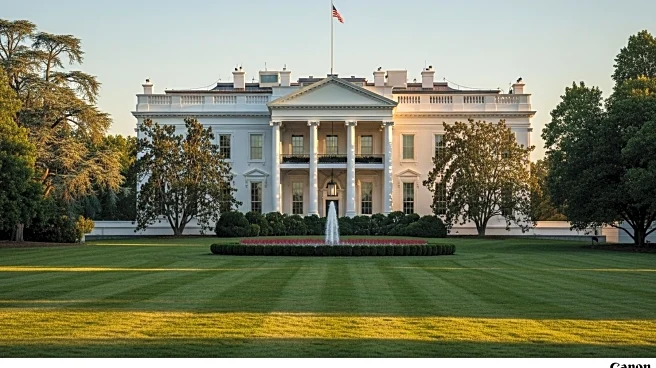What's Happening?
President Trump is hosting a roundtable discussion at the White House focused on antifa. The event is part of the administration's ongoing efforts to address issues related to domestic extremism and public safety. The roundtable aims to bring together various stakeholders to discuss the impact of antifa activities and explore potential policy responses. CBS News' Fin Gómez reports on the latest developments surrounding the discussion, highlighting the administration's focus on addressing perceived threats from antifa groups.
Why It's Important?
The roundtable discussion reflects the administration's prioritization of domestic security issues, particularly concerning groups labeled as extremist. By hosting this event, President Trump seeks to underscore his commitment to addressing public safety concerns and shaping policy responses to domestic threats. The focus on antifa aligns with broader political narratives that emphasize law and order, potentially influencing public opinion and policy decisions. The discussion may also impact the administration's approach to civil liberties and law enforcement practices, as it navigates the balance between security and individual rights.
What's Next?
The outcomes of the roundtable may lead to new policy initiatives aimed at curbing antifa activities and enhancing domestic security measures. The administration may propose legislative changes or executive actions to address the challenges posed by extremist groups. Stakeholders involved in the discussion could influence the direction of future policies, potentially affecting law enforcement strategies and community relations. The event may also prompt reactions from civil society groups concerned about the implications for civil liberties and freedom of expression.
Beyond the Headlines
The focus on antifa raises broader questions about the definition and treatment of extremist groups within U.S. policy. The administration's approach may set precedents for how similar groups are addressed in the future, impacting legal frameworks and societal norms. The discussion also highlights the cultural and political dimensions of domestic security, as it intersects with issues of free speech, protest rights, and government authority.









